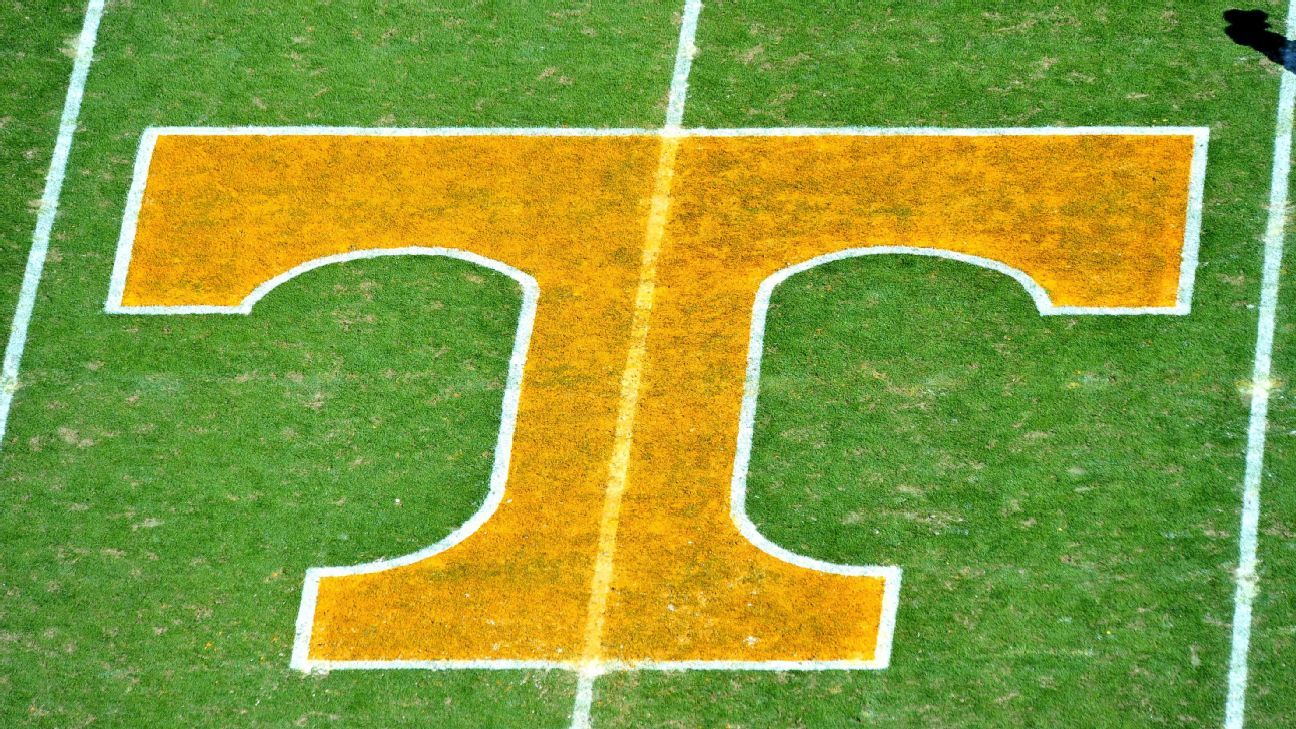The University of Tennessee is under NCAA investigation for violations related to name, image and likeness, sources confirmed to ESPN on Tuesday.
The investigation puts the Volunteers in the crosshairs for potential sanctions as a repeat violator. Tennessee is fresh off an NCAA ruling in the summer of 2023 in which it was charged with 18 Level I violations and fined a record $8 million.
The scope and breadth of the current allegations, according to sources, include the potential for the enforcement staff to charge multiple Level 1 and Level 2 violations. The case revolves around activity related to the Spyre Collective, which is Tennessee’s primary NIL collective, sources told ESPN.
The case is fundamentally tied to football, but Spyre Collective sponsors athletes in other sports.
The NCAA’s investigation into Tennessee was first reported by Sports Illustrated.
Tennessee has pushed back against the allegations. A document obtained by ESPN shows Tennessee chancellor Donde Plowman told NCAA president Charlie Baker that the allegations are “factually untrue and procedurally flawed.”
In the letter, obtained by ESPN through an open records request, Plowman calls the NCAA rules regarding NIL “intellectually dishonest” in how they are written.
This tension comes at a time when the NCAA appears to be focusing on rules tied to name image and likeness. Recent cases that emerged at both Florida and Florida State were tied to alleged NIL allegations.
Tennessee declined comment when reached by ESPN. The school has yet to receive a formal notice of allegations from the NCAA, sources said.
“I’d say there’s a real uptick in NIL cases, portal issues,” a source familiar with the NCAA space told ESPN. “They are the two main areas of enforcement staff inquiry. And those go hand-in-hand a lot of times. The NIL money is being used as transfer bait.”
Tennessee’s defense appears to be laid out in the scathing letter from Plowman to Baker.
“The NCAA’s allegations are factually untrue and procedurally flawed,” Plowman wrote in the letter. “Moreover, it is intellectually dishonest for the NCAA enforcement staff to pursue infractions cases as if student-athletes have no NIL rights and as if institutions all have been functioning post-Alston with a clear and unchanging set of rules and willfully violating them.”
Plowman hints at the scope of the charges by defending Tennessee from a perceived “lack of institutional control.”
“It is inconceivable that our institution’s leadership would be cited as an example of exemplary leadership in July 2023, then as a cautionary example of a lack of institutional control only six months later,” Plowman wrote to Baker.
Lack of institutional control — one of the most serious charges that a school can face — could be tied to the potential of Tennessee falling under repeat violator status, which is an issue of contention for the university. Per NCAA bylawys, a repeat violator happens within a five year window of the “starting date of a Level 1 or Level II penalty stemming form a a previous case.”
Simply put, a repeat violator is at risk for significant additional penalties, as “a heading panel may depart upward from the core penalties.”
“The University of Tennessee complied with the interim NIL policy and guidance as it was put into place by the NCAA,” Plowman wrote in her letter to Baker. “No member institution could follow future guidance prior to it being given, let alone interpreted.”
Plowman adds that no Tennessee employee has been named, nor has the collective or any athletes “broke any rule or guidance document as they existed at the time any actions were taken.”
“The NCAA enforcement staff’s intended processing of the proposed allegations is replete with legal and procedural defects, including unsettled and outstanding interpretive questions that require further attention and input from the NCAA membership, particularly given the novel nature of the issue and the gravity of such determinations,” Plowman wrote in the letter. “Further, some of the allegations are simply factually untrue.
“It is intellectually dishonest for the NCAA staff to issue guidelines that say a third-party collective/business may meet with prospective student-athletes, discuss NIL, even enter into a contract with prospective student-athletes, but at the same time say that the collective may not engage in conversations that would be of a recruiting nature. Any discussion about NIL might factor into a prospective student-athlete’s decision to attend an institution. This creates an inherently unworkable situation, and everyone knows it.”
ESPN’s Mark Schlabach contributed to this report.
